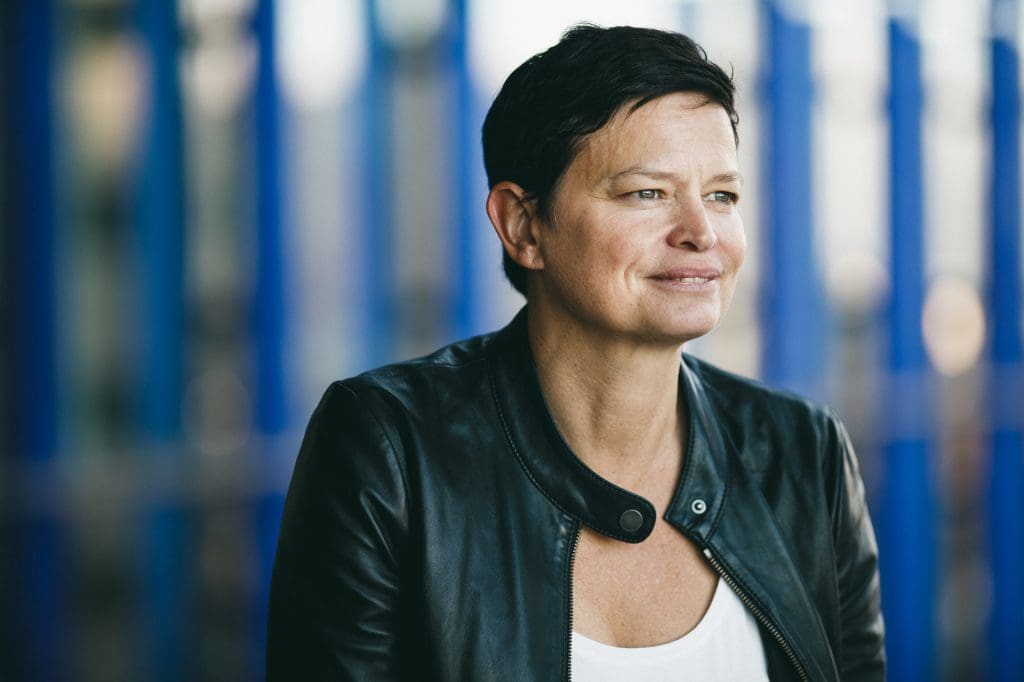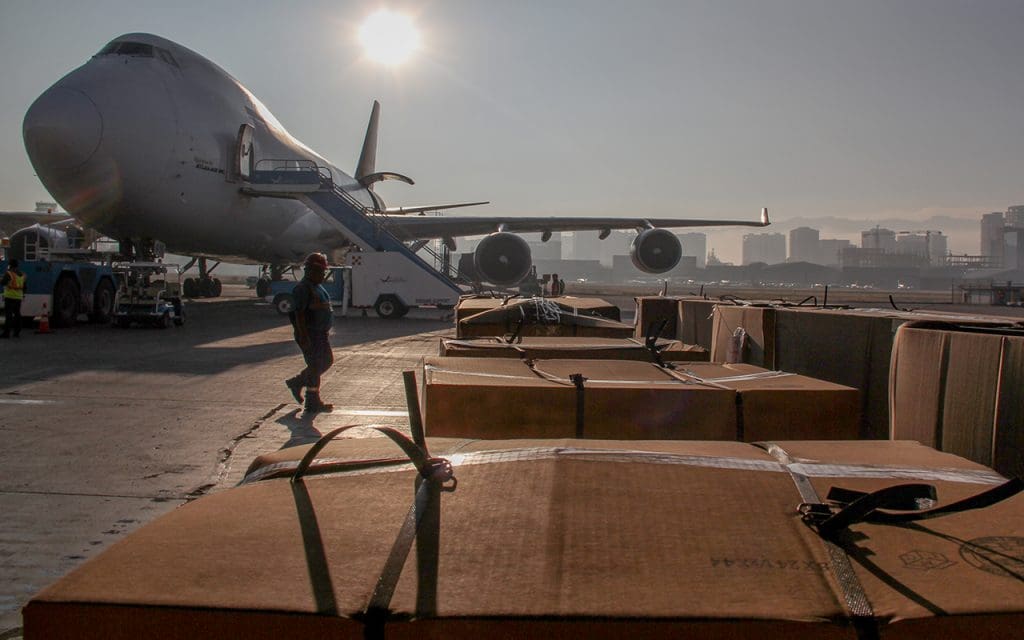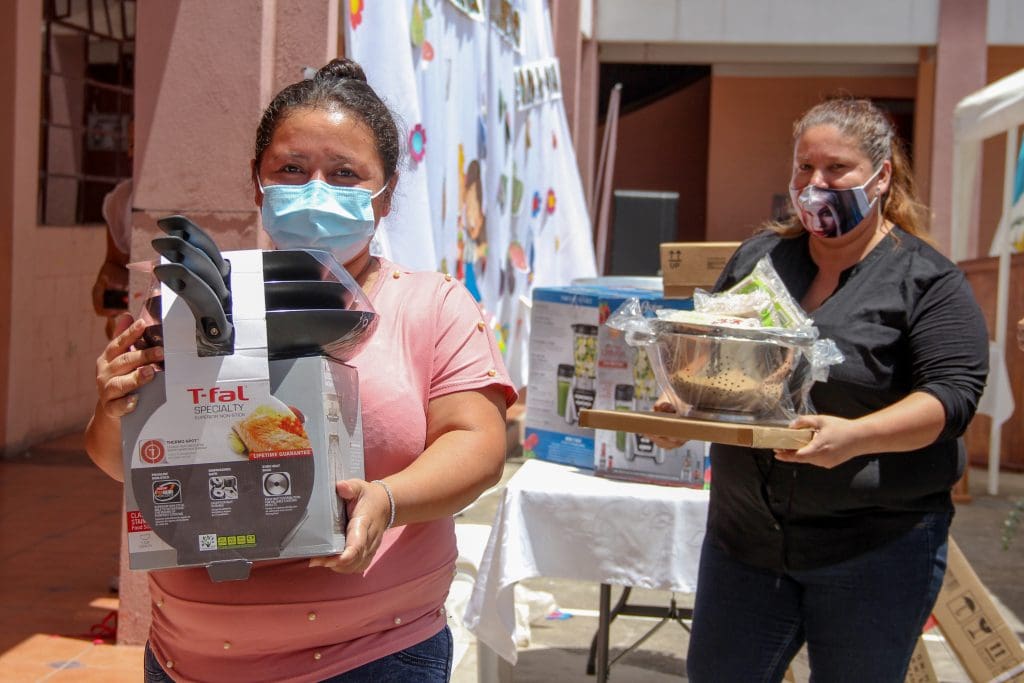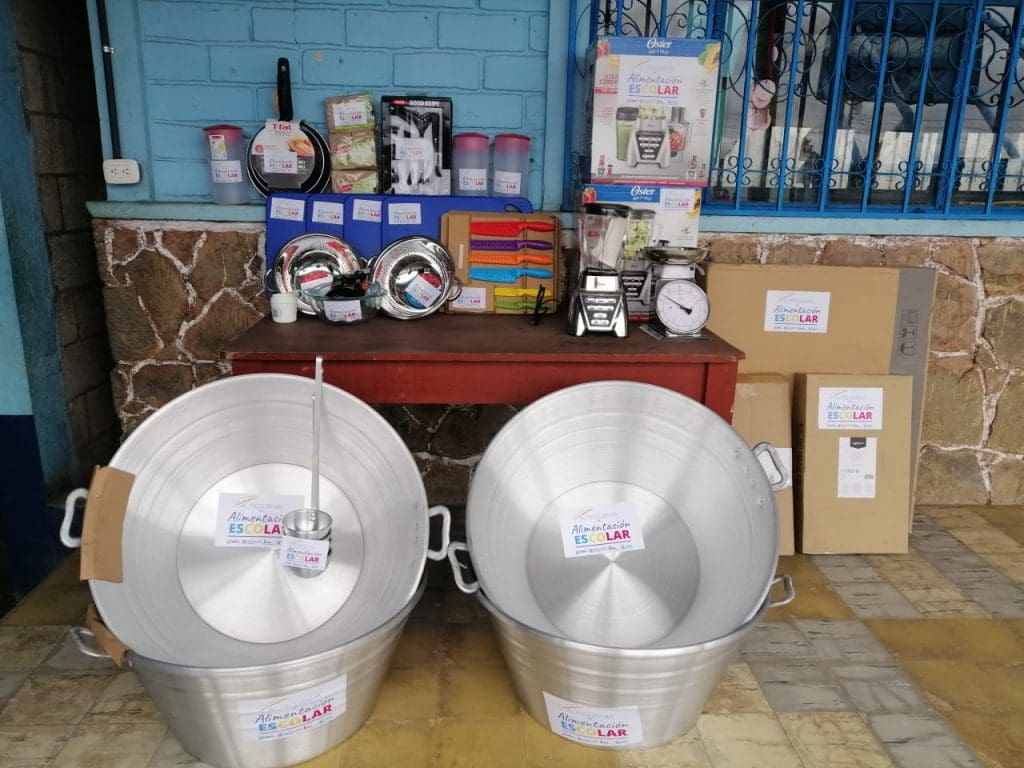What Bettina Stix, Amazon’s Director of ‘Right Now Needs’ and Disaster Relief, Has to Say About Hurricanes

This spring, World Food Program USA is drawing attention to the impact of extreme weather on the world’s most vulnerable populations and how the United Nations World Food Programme (WFP) helps communities respond to and recover from climate-related disasters.
In late 2020, Hurricanes Eta and Iota tore through Central America and the Caribbean leaving a trail of devastation in their paths. Relentless rains, high winds, landslides and flooding ruined millions of livelihoods and compounded the already devastating effects of COVID-19. In response, Amazon partnered up with the U.N. World Food Programme to deploy disaster relief supplies directly to those impacted by the back-to-back hurricanes.
We sat down with Bettina Stix, Amazon’s Director of Right Now Needs and Disaster Relief, to learn more about Amazon’s priorities in their humanitarian work and what inspired their partnership with the U.N. World Food Programme.
WFP USA: Amazon has always been a leader in innovation. How does Amazon apply that innovation lens to its humanitarian work, and what is Amazon’s approach to corporate social responsibility?
BS: Our philosophy is focused on community, and our mission is to harness Amazon’s spirit of innovation, grit and heart to help build strong communities worldwide. With a culture built around solving challenging problems, we take a different, more hands-on approach to what is traditionally known as corporate philanthropy.
Our key community initiatives are focused on disaster relief, housing equity, “right now” needs and computer science education. We remain nimble when we are uniquely positioned to respond and make a positive impact, such as tapping our global delivery networks to help aid workers during a natural disaster.
By leveraging Amazon’s scale, we can quickly innovate and help communities create long-term solutions. Threaded throughout all of our community efforts is a focus on underrepresented individuals and families. We envision a world that embraces diverse perspectives and recognizes the importance of racial equity.

Amazon supplies wait on the tarmac on their way to hungry families.
WFP USA: Amazon is a global leader in logistics and supply chains, which are also the backbone of the United Nations World Food Programme (WFP)’s work. How does Amazon see the role of the private sector in supporting humanitarian response operations?
BS: We are fortunate to partner with the U.N. World Food Programme in disaster relief. Our collective speed, creativity and reach have helped us provide aid and quickly mobilize large-scale responses to catastrophic events, including when we teamed up with the U.N. World Food Programme after two hurricanes hit Central America in late 2020. Through our disaster relief program, we leveraged Amazon’s products and our worldwide logistics network to directly deliver relief to impacted residents—with the goal of strengthening their communities.
But humanitarian work isn’t just about emergency relief—it’s also about community resilience. That’s why we partnered with the U.N. World Food Programme to support a multi-year program in Guatemala to feed children at 500 schools. The collaboration—part of a local government initiative—included the U.N. World Food Programme providing training and support, the local government providing the daily food and Amazon donating the culinary supplies.
We outfitted all 500 schools with a long-term investment of culinary supplies, from scales and utensils to blenders and cookware sets. The effort enabled local parent-teacher groups to prepare daily nutritious meals for school children.

Two women pick up their donation of cooking supplies.
WFP USA: What inspired Amazon’s support for the U.N. World Food Programme overall, and specifically for the emergency response in Latin America following Hurricanes Eta and Iota?
BS: Amazon shares a core value with the U.N. World Food Programme: to quickly provide logistics and relief supplies to help victims of natural disasters. Our disaster relief team has always been inspired by the global operations provided by the U.N. World Food Programme, especially during the devastating 2018 earthquakes in Indonesia and the 2019 cyclone in Mozambique. The U.N. World Food Programme mobilized and organized the global humanitarian response to both.
Our disaster relief team identified ways Amazon could help the U.N. World Food Programme after Hurricane Eta devastated parts of Central America in November 2020 and, just two weeks later, Hurricane Iota traveled the same path. The hurricanes destroyed entire communities and impacted several countries, including Colombia, Nicaragua, Honduras and Guatemala.
The U.N. World Food Programme quickly built mass shelters and organized a food supply chain but needed additional on-the-ground support for relief supplies. Amazon answered the call by rapidly mobilizing, leveraging local vendors from our relief network and tapping into our existing supply chain. Once the relief items were procured, our worldwide air and ground logistics network transported supplies into the affected countries. Through the partnership with the U.N. World Food Programme, Amazon donated and delivered more than 245,000 relief supplies, including cots, blankets, hygiene items and masks.

A table display of some of the supplies Amazon delivered including knives, pans and large multi-use bins.
WFP USA: We work to educate the American public about the key drivers of global hunger, one of which is climate change. In April, our #ClimateStarves campaign aims to raise awareness and mobilize action. Has the climate crisis impacted the work/focus of your department or Amazon at all?
BS: Amazon is committed to building a sustainable business for our customers and the planet. In 2019, Amazon co-founded The Climate Pledge—a commitment to be net-zero carbon across all businesses by 2040—10 years ahead of the Paris Agreement. We also see many ways to provide disaster relief in a sustainable way. For example, in instances where it makes sense to do so, we prefer to donate water filters instead of bottles of water. Additionally, we aim to donate solar chargers instead of batteries. Not only will these sustainable donations help preserve water and reduce toxic waste, but they’ll also help organizations and communities grow and stay more resilient in the long term.




